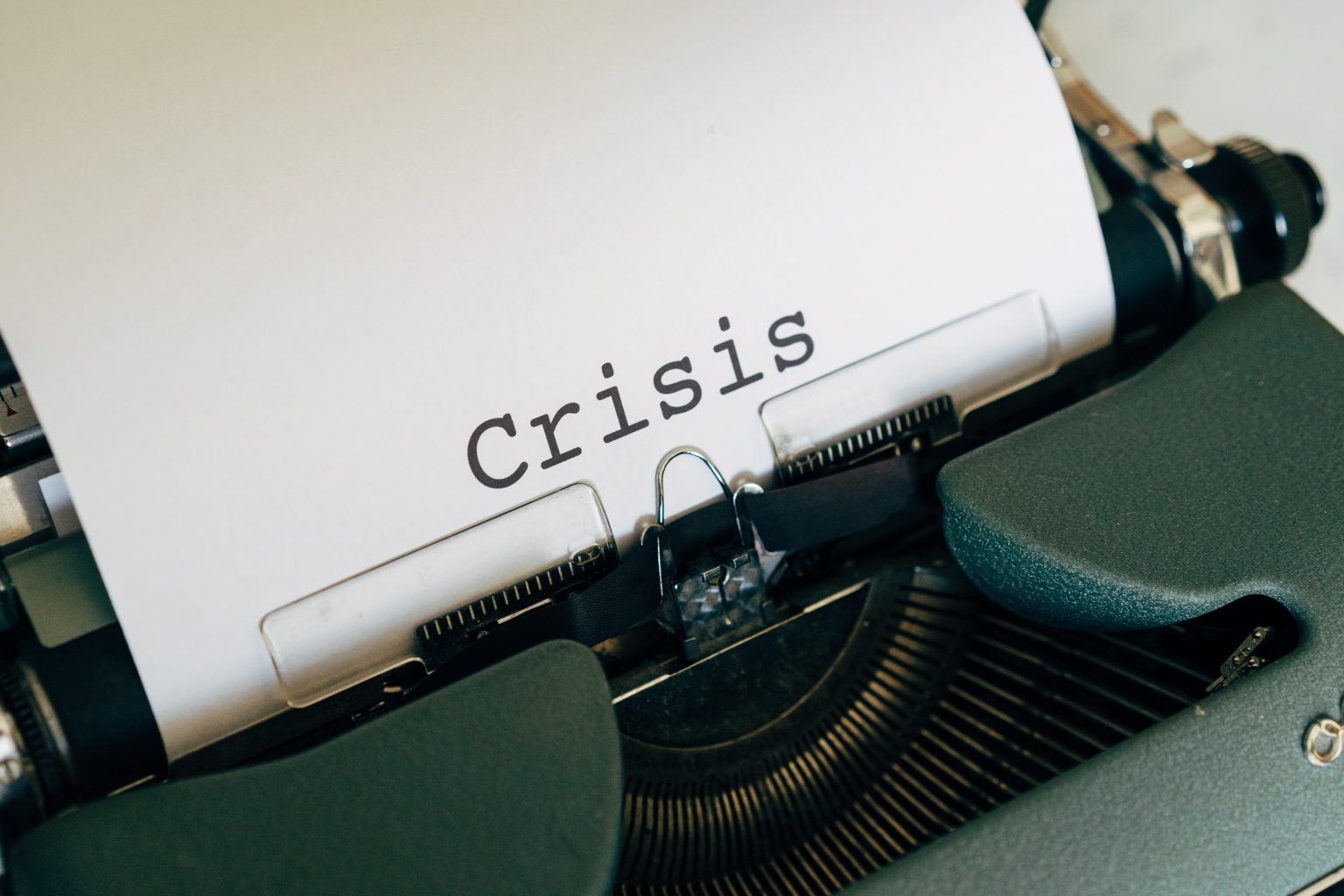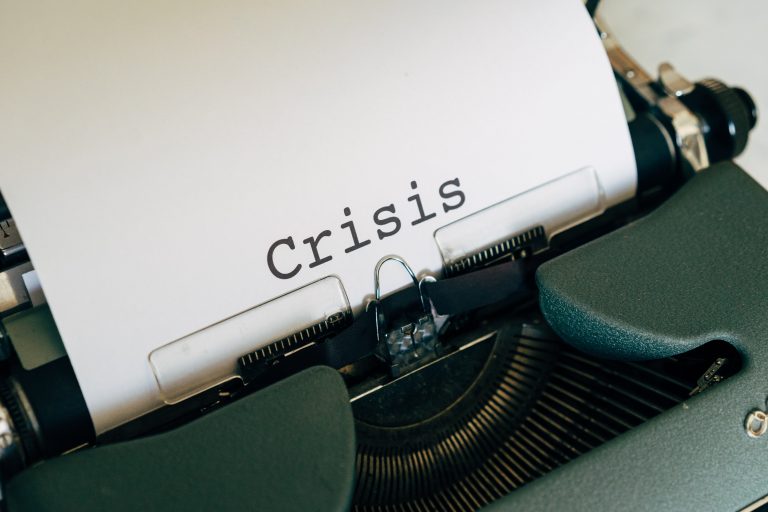No one was prepared for what 2020 had to bring. The emergence and spread of COVID-19 disrupted businesses globally, and yes, including many brands. The economy is hit hard, the death toll is rising, customer confidence is shaky, and brands promoting even a whiff of consumerism can be seen as being in poor taste. In times of a crisis, how brands react has never been more important. Those who respond well, well, remain relevant.
“In the midst of every crisis, lies great opportunity,” said Albert Einstein. To a brand navigating this crisis, delivering the right brand message at the right time can capture the customer’s heart and their brand loyalty. Certainly, one of the things customers react and relate to is how their favourite and trusted brands communicate when put to the test.
Some of you might wonder: How can brands then adapt creatively to a global crisis? Here are a few examples of iconic brands that have reacted gracefully, earning their place as a brand that remains relevant and beloved.
Brands can remain relevant in a crisis by speaking the language of the moment

Remember the iconic golden arches that sometimes add to your late-night binge lists? In Brazil, the iconic golden arches on Mcdonald’s brand logo was separated to demonstrate social distancing during the outbreak, with the message, “Separated for a moment to always be together”. This supports global health organisations’ call for everyone to be socially responsible to protect everyone’s health and retard the spread of the virus.
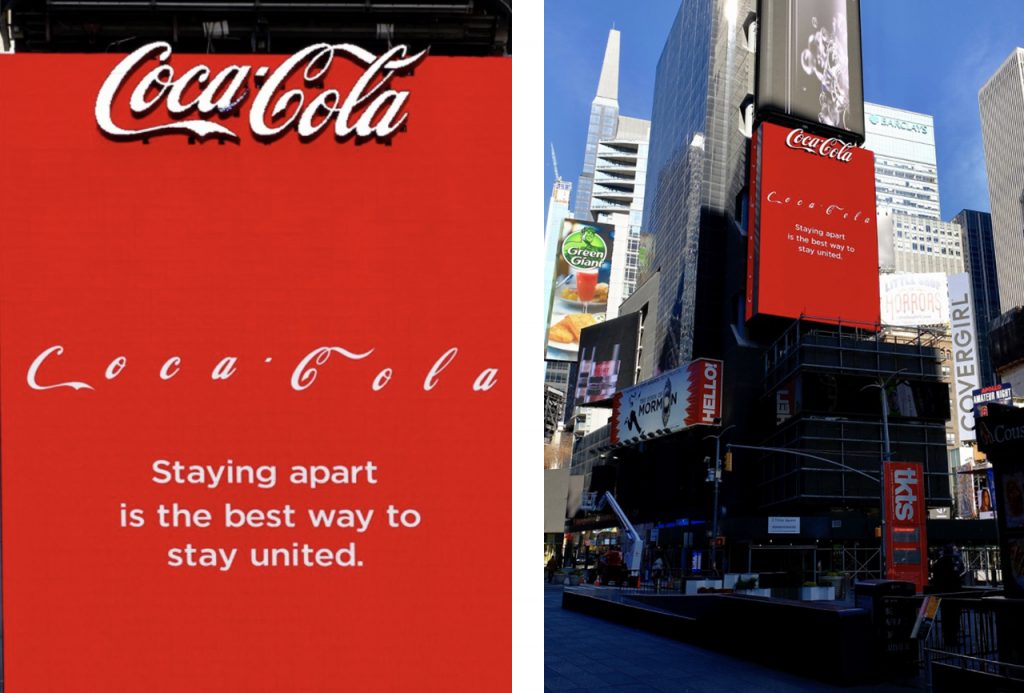
When social distancing hasn’t been followed by everyone, creativity stepped in. Coca-Cola created a giant outdoor advertisement of their iconic brand logo spreading the message, literally, to encourage social distancing in New York’s Times Square.
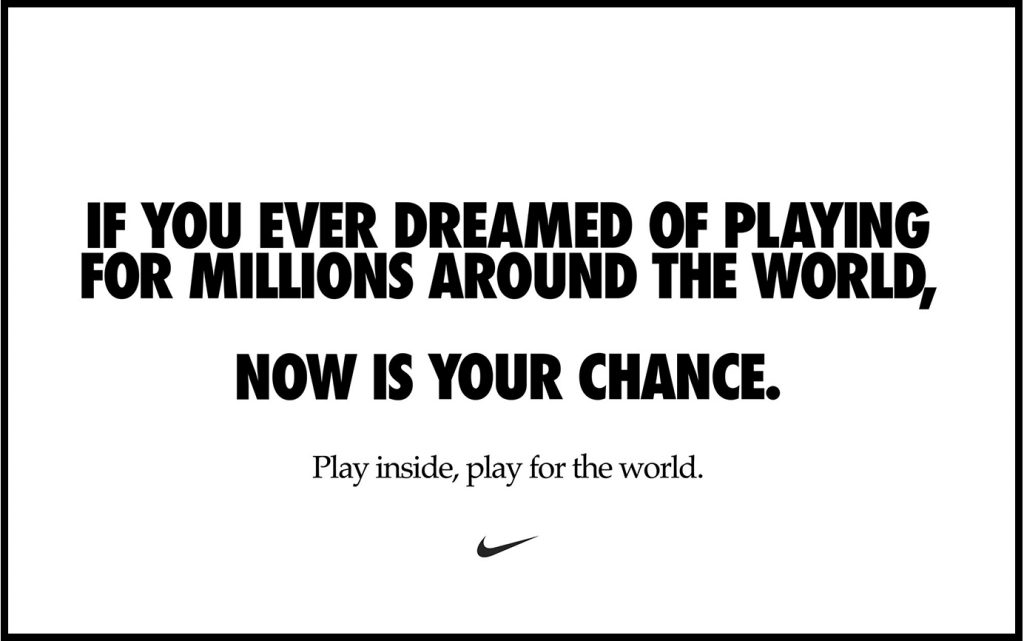
Nike always surprises us with their boldness and creative slogans. They proved that hopping on the bandwagon and changing the logo in response to the crisis may not be the only way to go. They updated their slogan to address the global crisis to create impact, and speak to the customer’s heart and preoccupations.
When #StayHome trended on social media, it was quite impossible to not mention IKEA. Their advertisement “I Stay Home” encouraged people in Spain to stay home and protect themselves and their loved ones.
Brands can certainly learn from the likes of Nike and IKEA to use storytelling as a way to remind customers of their brand’s core premise (and promise) while connecting that with what’s on their customers’ minds. It lets the brand remain relevant, crisis and otherwise.
Brands can remain relevant in a crisis by providing value
We get it, not every brand can execute a TV spot in a matter of weeks. Thankfully with the power of social media, brands can do what wasn’t possible decades ago.

TikTok, a platform where viral sensations are born and where people can’t help but keep scrolling, launched #HappyAtHome. This is a 30-60 min long live-streaming series, diverging from the usual 15-60 sec video content. The long-form videos provided comfort, education and connection to customers who may be bored while sheltering at home.

Brands should take the time to take a closer look at customer behaviour and hone in on what they love about the brand. Use these insights to then engage with the customers meaningfully with timely and relevant content to enrich their lives.
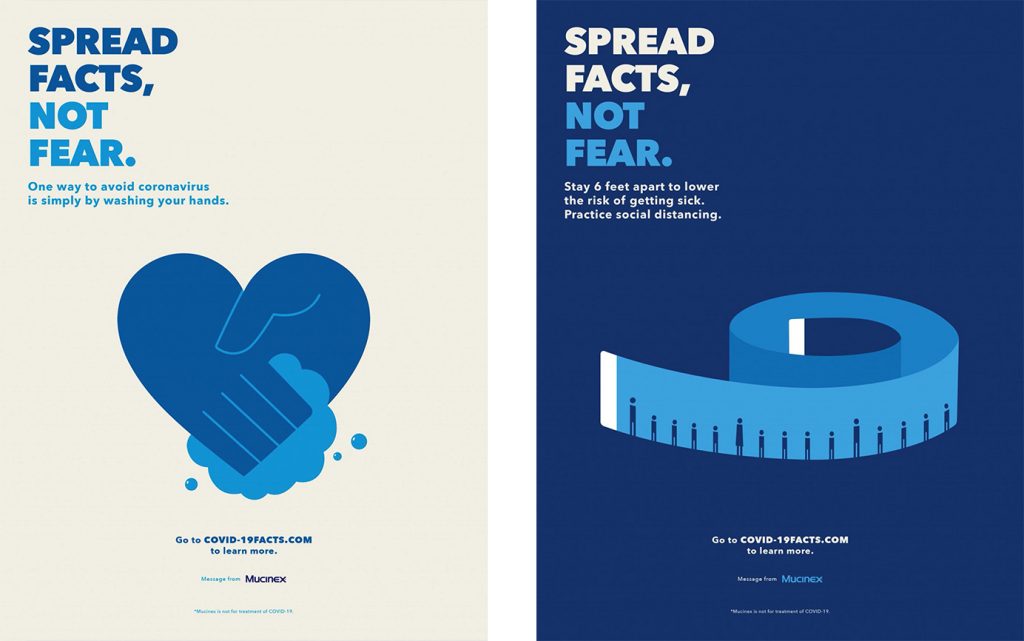
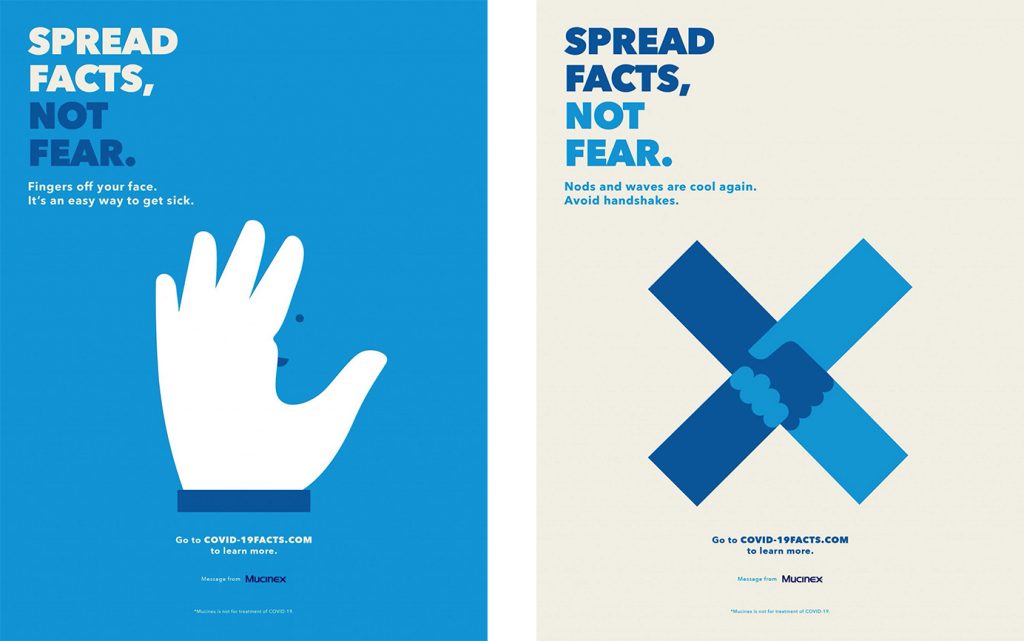
Mucinex released a series of informational and educational print advertisements reminding customers to take information online with caution. This builds reliability and customer’s trust while sharing a very valuable public service announcement. It shows that the brand understands what’s happening around them, and that they care.
What brands can keep in mind to remain relevant
During a global crisis, customer behaviours and needs may be unpredictable. Brands will have to proactively adapt and be cautious of what they communicate. Just because it’s a trend doesn’t mean it’ll work for your brand.
Put yourself in your audience’s shoes, dig into news articles and look for different channels to tell your message. Most of all, be culturally sensitive to the market you are targeting and display genuine care to consumers. This will not only influence brand communications but also help ensure effective use of budget.
While brands can adapt and communicate in this time of crisis, there are other factors to consider when coming up with marketing strategies during the downturn.


